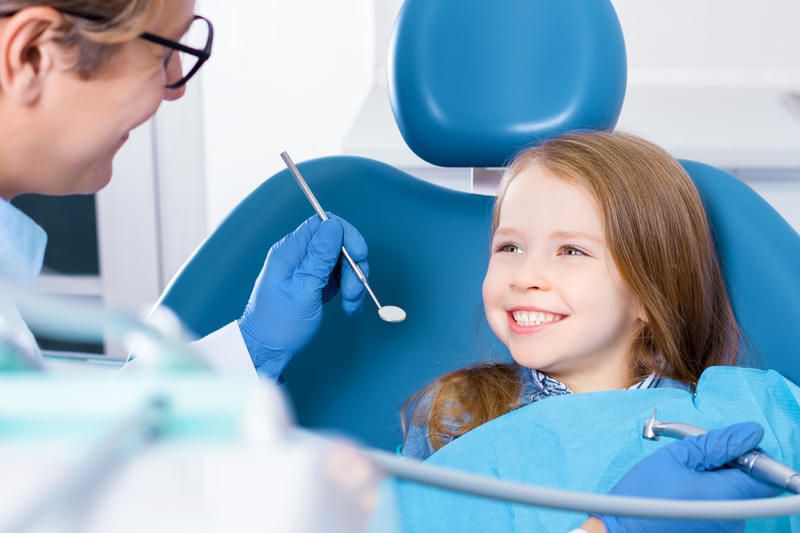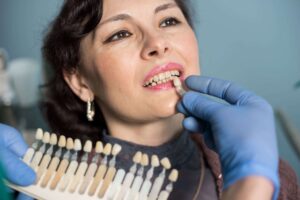Smiles for Little Ones: The Importance of Children’s Dentistry

Smiles for Little Ones: The Importance of Children’s Dentistry
Some parents make the misguided mistake of putting off that first dental check-up for children. They may reason that there is little point in examining a gummy-mouthed child without a full mouth of milk teeth. Alternatively, they may feel that it is unnecessary to nurture teeth that will ultimately fall out. While we understand this reasoning, it couldn’t be more off the mark. Early dental health and hygiene habits are the most formative and almost always inform dental health in adulthood. Of course, another issue parents may face is overcoming the dental anxiety felt by their children. Thankfully there are strategies they can implement to overcome this issue.
What Are the Key Benefits of Early Children’s Dentistry?
As soon as your child has even one tooth to examine, that’s your cue to book them into a paediatric dentist—in Berwick or beyond. The general rule of thumb is to get them in by age one—or two, at the latest. Why is children’s dentistry so important, especially in the early stages? It comes with many key benefits, among which include:
1. Early Intervention & Prevention
For children and adults alike, the sooner a dentist casts their professional eye over your set of pearly whites, the sooner they can correct any issues and prevent future problems. This is especially important in the case of early children’s dentistry. This formative stage of development is the time to monitor growth and diagnose any issues with the teeth or jaw—such as bite alignment—making dental or orthodontic corrections wherever necessary.
2. Establishment of Good Habits
If the habits we develop during the formative years inform the remainder of our lives, then getting started with our Berwick-based paediatric dentist early in life ought to instil healthy dental habits from the get-go. If you’ve been following professional advice about brushing, flossing and healthy snacking since infancy, a quality dental routine should come as second nature.
3. A Strong Foundation for Permanent Teeth
Milk teeth are essentially placeholders for their permanent successors. They may not stick around forever, but they play an important part for many years, as well as pave the way for permanent teeth. If a child neglects their milk teeth, they may lose one or multiple earlier than expected, compromising their dental layout and consequently obscuring the template they had in place for their permanent teeth. This can cause complications when the permanent teeth do eventually erupt, opening the floodgates to further structural issues such as dental crowding and jaw deformity later in life. Conversely, if a child treats their milk teeth like the precious—if temporary—fixtures they are, they’ll not only experience optimal dental health throughout childhood but also be preparing a solid foundation for their permanent teeth once they arrive.
4. Dental Anxiety Prevention
Children are perhaps more likely to experience dental anxiety than adults—which is all the more reason parents should encourage them to face their fears. It’s better to address this fear in childhood than to enter adulthood with a crippling fear of a critical component of dental care. While we’re hesitant to label it ‘exposure therapy’, there’s also no denying that exposing oneself to a feared stimulus on the regular can serve to normalise it. Parents can comfort their children throughout their check-up and even employ some strategies to reframe it as a fun experience—which we’ll discuss in more detail below.
How Can Parents Ensure a Positive First Dental Visit for Their Children?
There are many ways you can ensure your child has a positive first dental visit, from the way you discuss the topic with them to more proactive strategising. Let’s discuss what you can do in the lead-up to your child’s first experience with our paediatric dentist in Berwick.
1. Cast Dentistry in a Positive Light
Children are like sponges, and they often absorb more than we give them credit for. Given this fact, it should be no surprise that children can ‘catch’ dental anxiety. If you fear the dentist yourself, don’t allow this to colour the way you discuss the topic with your child. Instead, discuss dentistry using positive language, feigning enthusiasm if necessary, and avoid discussing the negative aspects if possible. If your child sees there’s nothing to worry about, they’ll have no cause to worry.
2. Have a Conversation
Ensure your child is aware they’re attending the dentist. Springing an appointment on them with no forewarning can contribute to dental anxiety. That said, informing them days in advance can also introduce a sense of looming dread. The best time to tell them is likely the morning of the appointment, at which time you can introduce the idea of attending the dentist and give them the space to ask any question they may have. When answering questions, ensure to keep it positive and avoid ‘trigger’ words such as ‘pain’ or ‘hurt’.
3. Present Videos or Read Your Child Books About Attending the Dentist
Many children’s television shows or books portray characters going to the dentist. And when it comes to conveying messages to children, fiction is likely the most accessible touchpoint. If a child sees their favourite characters having a fun time at the dentist, this can reframe the experience they’re dreading into something to look forward to. Even if they can’t garner that much enthusiasm, encouraging your child to watch or read about positive dental experiences will at least familiarise them with their upcoming appointment and better clarify their expectations.
4. Roleplay the Upcoming Appointment
Roleplaying is a common activity children partake in to develop creativity and experiment with different perspectives. If your child is feeling anxious about their upcoming appointment, roleplaying can be a fantastic way to address it. Not only are children receptive to roleplaying, but it also provides a safe environment where children can ‘test-drive’ real-life scenarios.
So, in the case of role playing their upcoming dental appointment, you should play out the scenario as follows:
1. Sit your child down in a chair and assume the role of the dentist. While playing this role, you should build familiarity by holding your child’s toothbrush. From there, count and brush your child’s teeth, explain what you’re doing, and give a spiel about the importance of oral hygiene.
2. Get your child to remove themself from the chair and either swap roles or have your child perform their ‘dental procedure’ on a soft toy.
For children, there’s something comforting about seeing an adult go through a similar procedure or uncomfortable encounter they are about to experience. The final benefit of playing out this scene is that they get to assume both roles, which will respectively familiarise them with the real-life experience and help them to feel more in control of the situation. You can repeat the roleplay as many times as you like.
Dental Check-Ups for Children Available at Our Paediatric Dentist in Berwick
Is your child ready for their first dental check-up? If so, you can book the appointment with our paediatric dentist at Langmore Dental in Berwick! Our child-friendly clinic services not only Berwick but also Narre Warren, Hampton Park and Clyde Road. So, if you call any of these places home, we’re just a hop, skip and a jump from your door. Call Langmore Dental today to begin your child’s journey to a happier picture of dental health.








